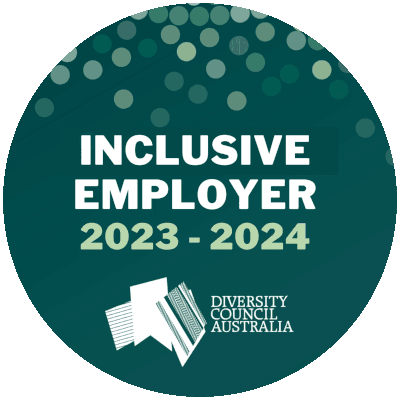Kyalie Moore is a Wadjarri Yamatji woman from Carnarvon Western Australia. Kyalie has devoted her life and career to tackling domestic and family violence within Indigenous communities and discusses its impact and importance and her role as Partnership and Engagement Manager at No to Violence – the largest peak body in Australia representing organisations and individuals working with men to end family violence. No to Violence provides support and advocacy for the work of specialist men’s family violence interventions carried out by organisations and individuals.
From the time I was about 12 years old, I realised that family and domestic violence was close to home. Family and domestic violence was all around me, becoming a normalised behaviour for resolving conflicts. Early in my working life, I made a personal commitment to end family and domestic violence within Aboriginal and Torres Strait Islander communities. My passion to stamp out Family and Domestic Violence in Aboriginal communities drives me every day to ‘just keep swimming’ as Dorie from Nemo would say.
As I began work early in my career, the only doors that were opening was to work with men who use family violence. This was an area that I resisted initially as my passion was to work with women in the Family and Domestic Violence space. As I continued to walk through the doors that were opening, I realised that working with men who use violence ultimately supports women and children to be safe and live in violence-free homes.
I worked as a Specialist Court Coordinator for Barndimalgu Court which is the only Aboriginal Specific Family and Domestic Violence Court in Australia, based in Geraldton WA. The court uniquely works in partnership with an Aboriginal specific men’s behaviour change program (MBCP). I also worked in the Aboriginal MBCP as an MBC practitioner within prison and community settings and continued to work as a supervisor to MBC practitioners.
My current role is the Aboriginal Partnership and Engagement Manager at No to Violence (NTV) in Melbourne. I have been working on NTV’s federally funded Department of Social Services Project. The project aims to increase family violence perpetrator accountability by building capacity in regional and remote Aboriginal communities.
This has involved traveling to rural and remote locations in Australia to connect with frontline workers who work with men who use violence in Aboriginal communities. After initial consultations with individuals and groups in each community (NGO’s, Govt Depts, Aboriginal Community Controlled Organisation’s, Aboriginal community members etc), I return with a co-trainer (one of four awesome Aboriginal men) to deliver the training in each community. The locations NTV will be delivering consultations and training to are Coen (Cape York), Alice Springs (NT), Geraldton (WA), Broome (WA), Kununurra (WA) and Cairns (QLD).
The aims of this training include:
- To create yarning circles and safe places for community and workers to speak about family violence, colonisation and the ongoing legacy of trauma. We bring community together to share experiences and support each other in this work.
- Phase One focuses on the drivers of family and domestic violence, dynamics of family and domestic violence, provides strategies to have a conversation with a man about his use of violence through collaborative dialogue and practice through role plays.
- Phase two of the training focuses on providing ongoing engagement and support to effectively assist community workers and leaders who engage and/or work directly with men using family and domestic violence.
- Working closely with Aboriginal community Elders and leaders to assist with best advice on delivery per location including involvement with Welcome to Country and smoking ceremony where advice has been given, has been crucial for the success of this work.
What I have learnt and can share about my experiences working in this space?
Some of the amazing things that I have learnt about going out to community include:
Knowing that every community is unique with their specific needs and protocols, what might be accepted and necessary in one location might not be accepted and/or necessary in another location. Each community is different. There is a need to be adaptable and tailor the training to each community. The more remote a community is the higher escalation of family and domestic violence and minimal support for service delivery. Frontline workers in remote areas are over stretched with their workload and welcome refresher training and conversations regarding reflective practice.
I have lost count of the amount of times I tell people how much I love my job. I am a little Boomerang literally – my name in Wadjari language means a small boomerang. My work satisfies my passion for ending men’s use of violence in Aboriginal communities as well as my passion for travel. All of the places I return to I do not return void. I remain teachable as I gather input from others as that is the first step to becoming a good leader.















